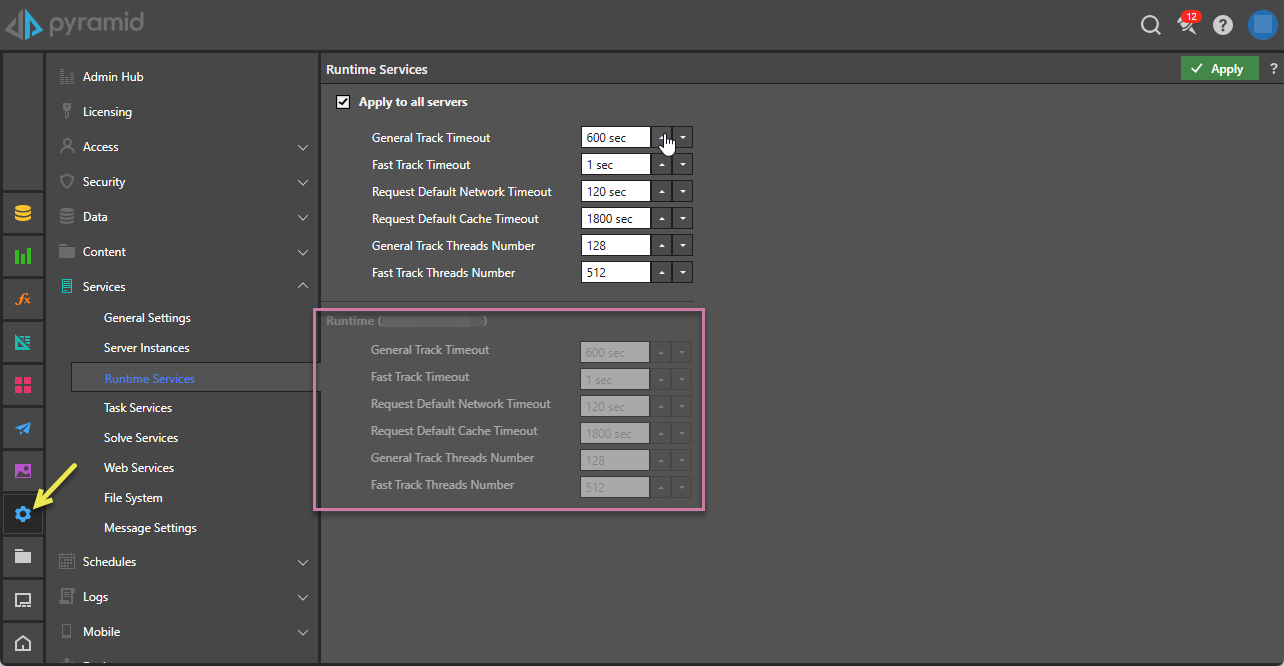The Runtime Engine is the core of the server-side application, handling all tasks except batched processing (batched tasks are handled by the Task Engine).
Runtime Services settings allow administrators to control how requests are processed. You can apply these settings for the entire platform or fine-tune them for each Runtime Engine server in multi-server environments. Customizing these values per Runtime Server instance helps optimize performance and resource usage, especially when hardware configurations differ across servers.
Note: In a multi-server deployment, each server will appear in the list going down the page (purple highlight below).
Admin Console Runtime Services

Settings
Request Default
- Request Default Network Timeout - Determines the maximum wait time for network requests. Increasing this value can help on slow networks. If a timeout occurs, the client will reinitiate the request.
- Request Default Cache Timeout - Specifies how long the response is cached while awaiting repeat requests from the client. This is especially useful for slow networks.
General Track
General Track threads are all threads not used for running queries (Fast Track) or opening reports (Launch Track). The related settings are:
- General Track Timeout - The length of time that a general thread should wait to process a job before timing out.
- General Track Threads Number - The number of concurrent general threads that can be created in the Runtime Engine. Be cautious not to set this too high, as "thread thrashing," or the over-use of threads, may decrease performance.
Fast Track
Fast Track threads are used for running queries. The related settings are:
- Fast Track Timeout - The length of time that a fast track/lane thread should wait to process a job before timing out.
- Fast Track Threads Number - The number of concurrent fast track/lane threads that can be created in the Runtime Engine. Be cautious not to set this too high, as "thread thrashing," or the over-use of threads, may decrease performance. Care should also be taken to not overwhelm data sources by excessively increasing the number of concurrent queries being launched from Pyramid.
Launch Track
Launch Track threads are used for everything related to opening reports. The related settings are:
- Launch Track Timeout - The length of time that the launch track thread should wait to process a job before timing out.
- Launch Track Threads Number - The number of concurrent launch track threads that can be created in the Runtime Engine. Be cautious not to set this too high, as "thread thrashing," or the over-use of threads, may decrease performance. Care should also be taken to not overwhelm data sources by excessively increasing the number of concurrent queries being launched from Pyramid.